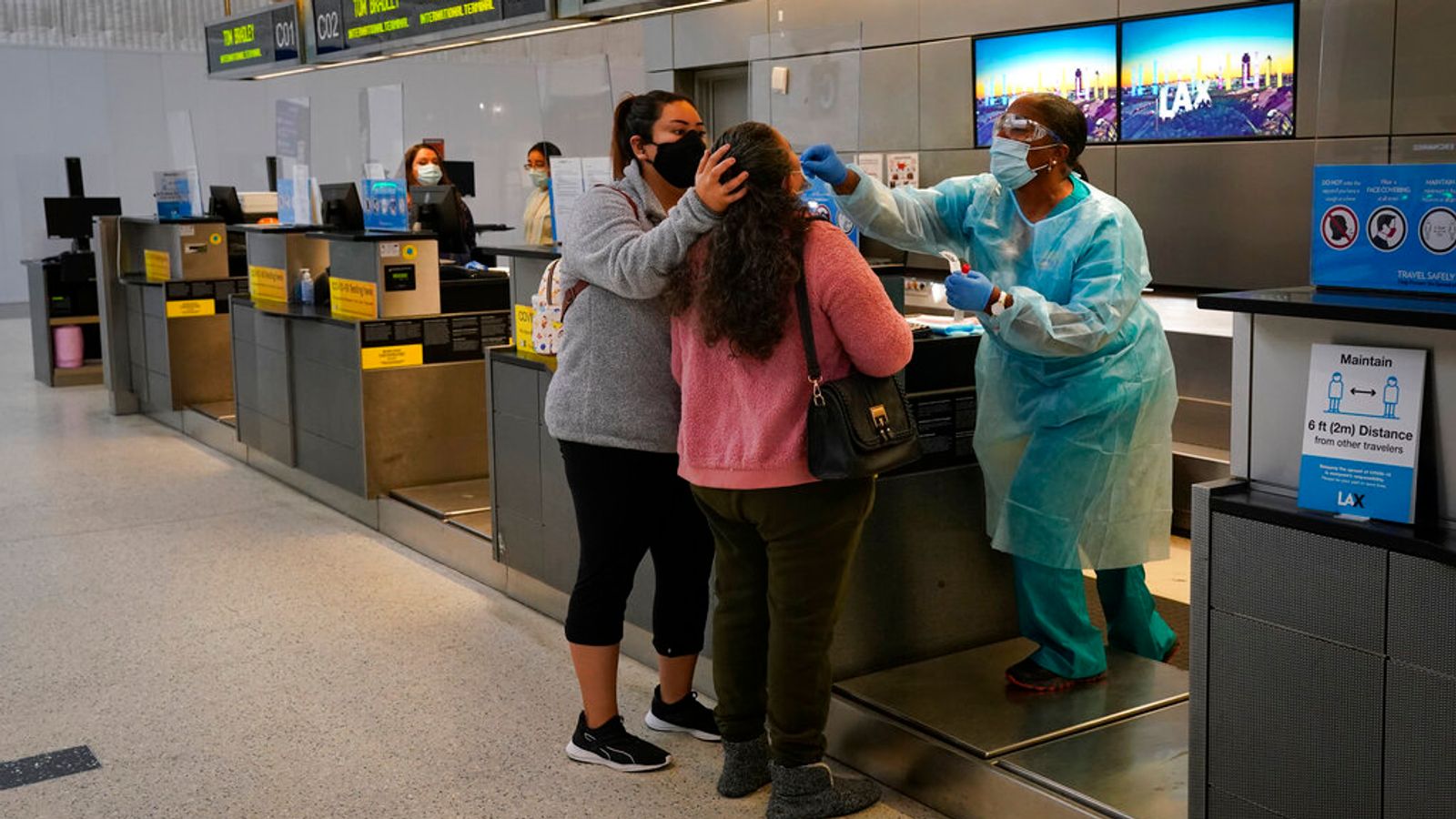The United States will drop a requirement for travellers to test negative for COVID-19 before entering the country.
The change will come into force at midnight on Sunday for all passengers arriving by plane.
Kevin Munoz, the White House assistant press secretary, tweeted that Joe Biden‘s work on vaccines and treatments was “critical” to the development.
He said the Centers for Disease Control and Prevention will monitor “based on the science and in context of circulating variants” but for now deemed testing was no longer necessary.
Most countries, including the UK, have already abandoned testing requirements in a bid to return international travel to pre-COVID levels.
Previously fully vaccinated arrivals to the US could show a negative test result within three days of travel, with non-vaccinated travellers made to test within a day of their journey.
But when the Omicron variant swept the US in November, Mr Biden toughened the rules to require all non-US adults to test within a day.
‘Shameful and toxic’: MPs demand answers over billions of PPE going up in smoke
Japan to allow tourists for first time in two years as it eases COVID-19 restrictions – but visitors will need a chaperone
Prisons criticised over inmates doing little but watching daytime TV and sleeping
Dropping ‘burdensome’ testing will boost travel industry
Travel industry bosses across the US have been calling on the government to drop testing requirements for months, claiming it is deterring people from booking international trips.
“I’m glad the CDC suspended the burdensome coronavirus testing requirement for international travelers, and I’ll continue to do all I can to support the strong recovery of our hospitality industry,” Senator for Nevada, Cortez Masto said in a statement.
Read more:
UK COVID infections rise for the first time in two months
It comes six weeks after a federal judge lifted the CDC requirement to wear masks on all trains, planes, buses and public transport hubs.
The Biden administration is challenging the ruling, claiming it would help better manage future health emergencies.






















